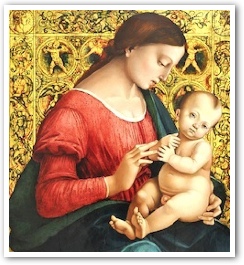The stable is stronger than the slaughter
- FATHER RAYMOND J. DE SOUZA
If the Word of God has nothing to say about the killings in Newtown, then it has nothing to say, period.
 |
In my first year as a parish priest, the choirmaster asked me to speak to the choir just minutes before Mass on Christmas Eve. The high school students in the choir were distraught. One of their classmates had been killed the day before in a train accident. I was reluctant. What to say? But it falls to the preacher to preach.
"A world in which a 15-year-old boy dies in a terrible accident needs redeeming," I told them. "This world needs saving. The point of Christmas is that we have a redeemer; the saviour has been born to us."
The little caskets are being buried this week in Newtown, Conn. It falls to the preachers to preach over them. Our words are weak, certainly too weak for those in the agony of grief. But the Christian disciple listens for another Word.
We preachers must tearfully insist upon that, for if the Word of God has nothing to say about the killings in Newtown, then it has nothing to say, period. Any philosophy, any theology that has nothing to say this week in Newtown has nothing to say at any time or any place.
The Word of God speaks about killing the little ones. In Bethlehem, too, the children were slaughtered, the jealous King Herod ordering the slaughter of all the baby boys, hoping that the newborn king would be among them.
The world of that first Christmas was not the irenic world of "silent night." There were no firearms, but Jerusalem under imperial domination was a world more violent than ours is today. A preacher in New England, Father Roger Landry, reminded his congregation on Sunday that Roman law granted every father the right to kill members of his family with impunity, and many did. Slave owners were permitted to torture and kill their slaves. Herod the Great arbitrarily executed rivals, real and imagined, including his own sons. What St. Matthew records of his brutality against the baby boys of Bethlehem was in keeping with the tenor of the times.
In Newtown, the atrocity sprung from a mind gone mad, abetted by the madness of arming the citizenry to the hilt. In Bethlehem, it was a calculated plot, executed not by a lone lunatic but by a disciplined royal guard. The order came from the king in his palace, not from the dark and hidden places. There were courtiers aplenty praising the royal wisdom, admiring the royal courage, flattering the maneuvers of statecraft. Over their fevered laudations, Herod could not hear the wailing of the mothers, the grieving in Ramah, the weeping of Rachel who refused to be comforted for her children were no more.
This is the Word of God, just a few passages after the birth of Jesus. This was the world into which the Prince of Peace was born. In the years immediately after Jesus' birth, the name of Bethlehem would not have been heard as we hear it today; it would have been heard as we hear Newtown today, the place of the massacre. History is the combat between the Bethlehem of the baby in the manger and the Bethlehem of the murdered babies.
This is the Christian conviction that the stable is stronger than the slaughter. |
Reasonable people may reasonably conclude that in the face of that which is unspeakable, it is reasonable not to speak. Yet the entire Christian faith hangs not on the dictates of reason, but on the logic of love. The preacher strives to preach, not his own word, but the Word of God, the Word made flesh, the eternal Word born in Bethlehem. God speaks His Word of solidarity in suffering, a Word of redemption, a Word of salvation, a Word of love. He speaks because this sin-stained world has abundant suffering, and needs redemption and needs salvation and needs love. Jesus does not speak when laid in the manger. He speaks when hung upon the cross.
The sacrificial Love born in Bethlehem can transform the lethal bloodletting soon visited upon that same city of David. This is the Christian conviction that the stable is stronger than the slaughter.
Tell the preacher then to preach. Tell the writer then to write. Tell the storytellers then to tell the story. Give to us a Word for both the crib and the carnage.
To all my readers then, as we approach that little town of Bethlehem, I wish — not in spite of the manifest wickedness in the world, but precisely because of it — a blessed Christmas. The world needs a redeemer. At Christmas, He is born to us.
 This is Meaghen Gonzalez, Editor of CERC. I hope you appreciated this piece. We curate these articles especially for believers like you.
This is Meaghen Gonzalez, Editor of CERC. I hope you appreciated this piece. We curate these articles especially for believers like you.
Please show your appreciation by making a $3 donation. CERC is entirely reader supported.

Acknowledgement
Father Raymond J. de Souza, "The stable is stronger than the slaughter." National Post, (Canada) December 20, 2012.
Reprinted with permission of the National Post and Fr. de Souza.
The Author
Father Raymond J. de Souza is the founding editor of Convivium magazine.
Copyright © 2012 National Post

